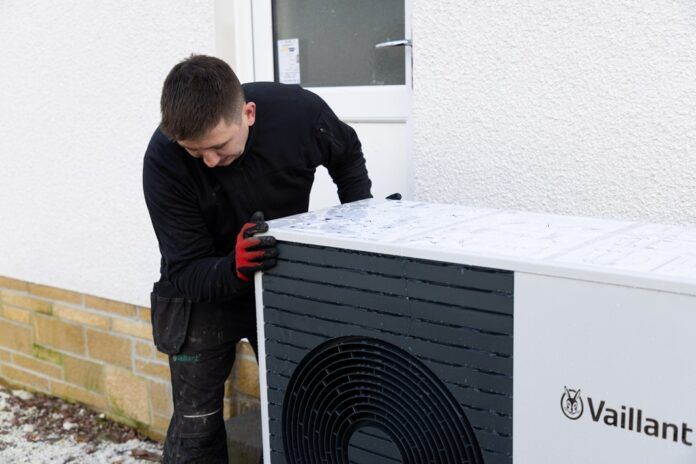
A new survey of UK heat pump installers revealed that 30% of respondents reported that finding suitable additional staff was the second biggest barrier to installing more heat pumps, after an overall lack of customer demand.
Nesta, the innovation charity, analysed 345 responses to a survey of heat pump installers co-devised with industry and run in partnership with heat pump training consultant Nathan Gambling and Emma Bohan of heat pump firm IMS Heat Pumps, between October and November 2023.
The research found that heat pump engineers who cited a lack of customer demand as an issue, for 41% of respondents, believe customers aren’t choosing to progress with installations either because of the general cost of heat pump installations, or because they’ve received a cheaper quote from other companies. This suggests that even with government-funded grants, it noted, additional finance schemes for heat pump installations are needed.
Recruitment is an even bigger issue for larger heat pump businesses, it added. For heat pump businesses with six or more staff, 41% said that finding additional staff is the biggest barrier.
This barrier in recruitment is a particular challenge as many heat pump companies reported that they were looking to expand, with 81% of respondents from firms with six or more staff reporting that they were likely or very likely to employ new staff in the next 12 months.
While all heat pump business owners noted they needed to boost their businesses’ skills in core areas like heat loss surveying, 16%, administration, 14%, heating system design, 13%, plumbing, 11%, and F-Gas training, 11%, owners of heat pump companies with six or more staff also noted that they needed candidates with broader skills to grow their business. Sales and marketing was the top skill desired overall and particularly by businesses with more staff, rising from 18% overall to 28% for companies with six or more staff.
Smaller heat pump businesses, sole traders and company owners with one to five employees, had a much lower confidence in the level of training that graduates from apprenticeship schemes have compared to larger heat pump company owners. Two thirds of sole traders and 66% of company owners with one to six employees, had no or very little confidence in the training of recent graduates from apprenticeships. In particular, they thought that the training apprentices receive on practical heat pump installation and general plumbing skills needed improving.
Nesta’s previous research has suggested that around 37,000 installers might be needed by 2030 to deliver on the UK’s net zero commitments.
Oliver Zanetti, mission manager of sustainable future at Nesta, said: “Heat pump installers in Britain are getting on with the job of helping people decarbonise their homes. While political uncertainty has caused some disruption in the heat pump market, the UK has a committed and expert core heat pump installer workforce.
“Any policymaker that wants the UK to meet its net zero targets should be listening to what installers are actually saying and helping to grow the industry. We conducted the first survey of heat pump installers run in close collaboration with industry to understand the blockers and opportunities it faces. It’s clear that staff recruitment continues to be an issue for an industry that needs to expand to meet future demand. To recruit the next generation of installers, colleges and industry must work together to improve apprenticeship courses.”
